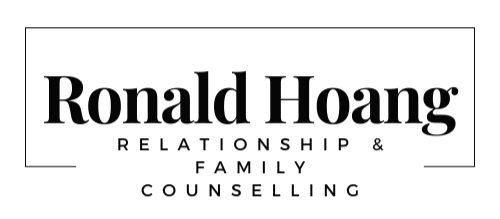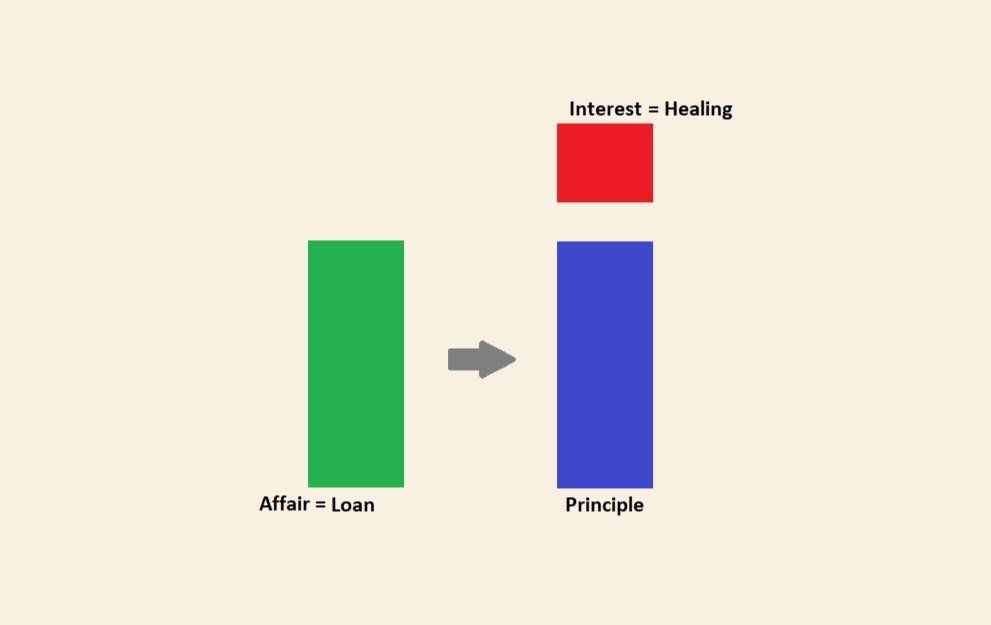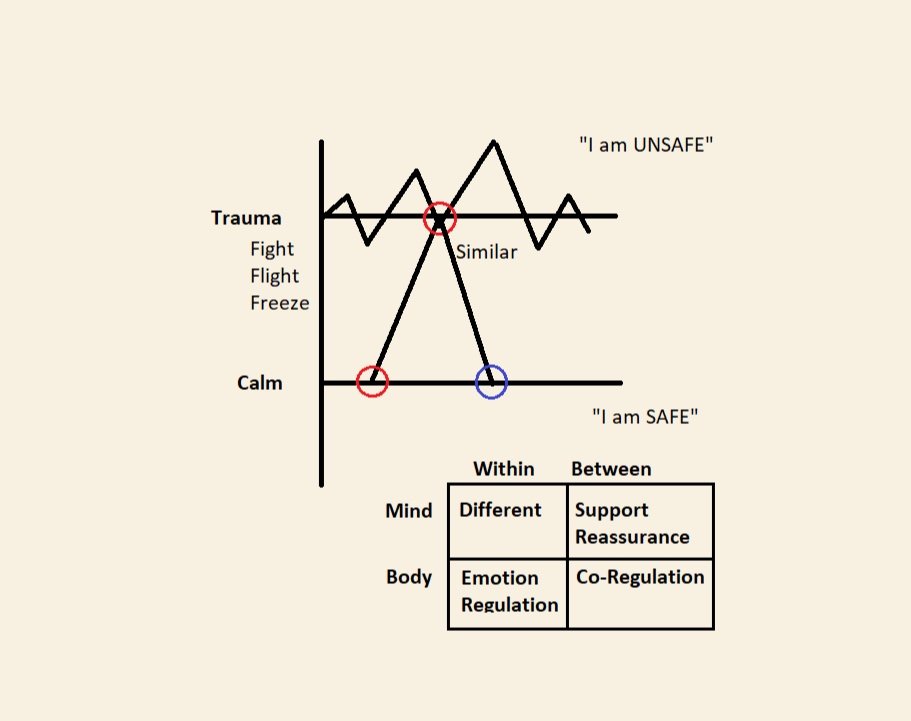My partner cheated, now what? | Surviving infidelity
Your partner cheated. Now what?
Couples go down 3 paths: burn all belongings and break up, “forgiven” on a tight leash or they manage to turn wounds to wisdom
This is for couples who want to try to make it work and realise that having their partner on a leash is exhausting, for everyone involved - while one is leashed, someone needs to be holding.
Healing from an affair is a job for two. It takes one to stray, but two are responsible for the creation and continuity of a relationship.
To the affairing partner
The healing process is reliant on you. The affair must stop entirely, and if you really want to make it work you’re going to need to put in work.
I use the metaphor of a bank loan. When you get a loan from the bank, to repay the loan you pay back the principle (which matches the exact amount loaned) plus interest (which is payment on top of the principle – extra repayment to the bank as compensation for providing the loan in the first place). By straying from the relationship, you’ve taken out a loan, and it’s in the interest repayment where healing occurs.
A key ingredient in healing is remorse. Remorse means to take responsibility and acknowledge the wrong doing and hurt. To show the betrayed partner “I care, you matter, I see the pain, this relationship is important”. There’s no hope for healing without remorse.
Furthermore, it’s the actions after an apology that give an apology meaning. This forms part of the interest repayment. Remorse on it’s own is often just the principle.
How long are repayments for? Well, it depends on how large the loan was.
Where couples get stuck is in the details. It becomes an interrogation, did you have sex? When? Where? How? The wanderer wants to sweep the affair under the carpet, whilst the hurt partner wants it out in the open.
It can feel frustrating for the unfaithful partner, as you think “how can we move forward, when you’re stuck in past”. Flip the script: be responsible for the affair – for bringing up the affair, for thinking about it, for protecting the relationship boundaries. The hurt partners “obsession” comes from trying to make sure the hurt is not forgotten. If you take responsibility for holding on to it, then your partner doesn’t need to.
To the affaired on
Questions are important to have, but some answers are better not to know. Once you know the answer, you must live with the consequence of knowing. It’s a question of how much knowledge will protect and heal versus how much it will retraumatise.
The symptoms experienced after an affair resemble post-traumatic stress disorder: Intrusive thoughts and images, nightmares, sudden swings in emotion, emotionally numb or explosive, hypervigilance, rumination.
When you’re looking through your partners phone or questioning their whereabouts or you can’t get the affair out of your head – these are symptoms of trauma.
You don’t want these symptoms, they are out of your control. But it’s part of the condition left behind when there’s an affair.
As with PTSD, images trigger affair symptoms. It can make things worse. You want to avoid images. Questions and talk of the sex only serve to enhance the images in your head. This only aggravates the wound. And most affairs aren’t about sex anyway.
Affairs shatters one’s reality – that's what makes it a trauma, it threatens one’s psychological existence - the narrative of the life and relationship you knew to be true, you can no longer trust. Recovery from an affair is recovery from trauma.
When we go through trauma, the world is unstable and unpredictable. We go through our threat response - fight flight freeze, our internal messaging is “I am unsafe”
When we are calm, the world is stable and predictable, and our internal messaging is “I am safe”.
Generally in life, we will start off in calm, then something may happen that triggers us and reminds us of the past traumatic incident. That trigger reminds our mind and body of the trauma and how it was “similar” to what had happened and we move from “I am safe” to “I am not safe”.
We don’t want to stay in a traumatised state, so we attempt to bring ourselves down to a calm state.
This process happens within and between, in mind and body.
Within meaning within oneself, between meaning in relationship with other.
What you can do for yourself is differentiation – what is different now versus the trauma, where trauma reminds us of what is similar
Emotion regulation is important to bringing the body back to present, rather than stuck in past – fight flight freeze
What the other can do is help to differentiate through support and reassurance, strengthening the message “I am safe”
And helping to co-regulate, providing a safe environment by witnessing and holding the space for the hurt partner to process the trauma
An affair is a relational trauma, and healing happens in relationship.
When enough has healed, it can be time to turn the affair wounds to relationship wisdom. To learn about what was it about the past relationship that lead to the affair, what lessons can we learn and how can we use these lessons for the current relationship. Moving from interrogative questioning to investigative questioning.
A relationship is a two way street, each partner has a role to play in the affair. Affairs offer the opportunity for couples to re-evaluate the relationship. Using past problems to nurture and strengthen the current relationship.
At the very core of an affair is secrecy.
By outwardly negotiating your relational contract you clarify your relationship boundaries and circumvent secrecy. Many couples simply assume the same definition of cheating, not knowing it varies greatly from person to person. It’s only in crisis does this get discussed.
Some say sex is cheating, others say a kiss, some say watching porn is cheating, others say simply a text or even a “like” is cheating. For some, all of this is fair game.
Lay out expectations. The difference between secrecy and privacy is with secrecy there is the intention to withhold.
And it’s this secrecy that leads to broken trust. People believe that transparency gives birth to trust, but it also gives birth to surveillance. Trust is being able to sit with uncertainty.
Trust is built by negotiating between safety and risk. Trust comes from being in a safe space and learning to trust. It also comes from being able to take risk, and move beyond that risk/vulnerability to build trust.
As a couple, you will navigate the risk tolerance which you and your relationship is able to sustain guided by your level of trust and relationship boundaries that you define. Know that trust is built in drips and lost in buckets.
Eventually, with emotional intimacy comes physical intimacy.
This is a blueprint of the healing journey. It's the start relationship 2.0.



